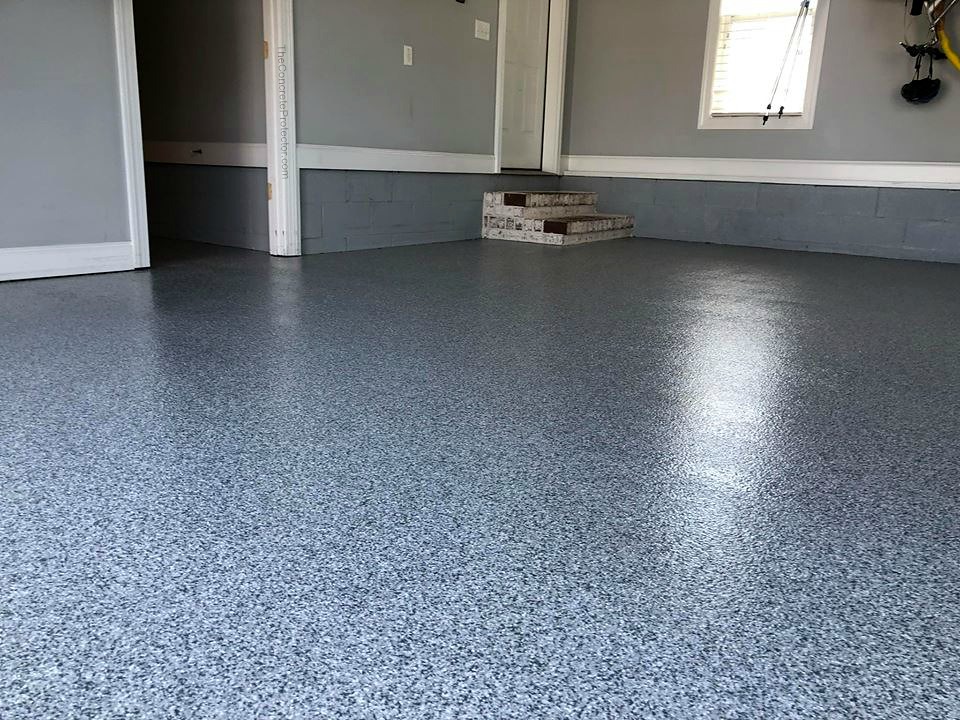Transforming Your Garage Floor: The Ultimate Guide to Coatings
A garage floor is more than just a surface to park your car. It's an integral part of your home that can significantly impact the overall aesthetics and functionality of your space. Garage floor coatings have become increasingly popular among homeowners looking to enhance the durability, appearance, and value of their garages. This comprehensive guide will explore the world of garage floor coatings, focusing on two primary options: epoxy and polyurethane.

Why should you consider a garage floor coating?
Investing in a garage floor coating offers numerous advantages. First and foremost, it provides a protective layer that shields your concrete floor from oil spills, grease, and other automotive fluids that can cause staining and deterioration. Additionally, a well-applied coating can make your garage floor easier to clean and maintain, saving you time and effort in the long run.
Aesthetically, garage floor coatings can dramatically transform the look of your space. They come in a variety of colors and finishes, allowing you to customize your garage to match your personal style or complement your home’s exterior. Some coatings even offer decorative options like flakes or metallic finishes for a truly unique look.
What is epoxy garage floor coating?
Epoxy is a popular choice for garage floor coatings due to its durability and versatility. It is a two-part system consisting of a resin and a hardener that, when mixed, create a chemical reaction resulting in a tough, plastic-like material. Epoxy coatings bond well with concrete surfaces and provide excellent resistance to chemicals, abrasions, and impacts.
One of the main advantages of epoxy coatings is their thickness. They can be applied in multiple layers, creating a robust surface that can withstand heavy loads and frequent traffic. Epoxy coatings also offer a high-gloss finish that enhances lighting in your garage and gives it a clean, professional appearance.
What is polyurethane garage floor coating?
Polyurethane coatings are another excellent option for garage floors. While they may not be as thick as epoxy coatings, polyurethane offers superior flexibility and UV resistance. This makes them particularly suitable for garages that experience temperature fluctuations or exposure to sunlight.
Polyurethane coatings are known for their excellent chemical resistance and ability to withstand hot tire pick-up, which occurs when hot tires leave marks on the floor coating. They also provide a more consistent color and gloss retention over time compared to epoxy coatings.
How do epoxy and polyurethane coatings compare?
When choosing between epoxy and polyurethane coatings for your garage floor, it’s essential to consider their respective strengths and weaknesses. Here’s a comparison of these two popular coating options:
| Feature | Epoxy Coating | Polyurethane Coating |
|---|---|---|
| Thickness | Thicker application | Thinner application |
| Durability | Excellent resistance to impacts and abrasions | Superior flexibility and UV resistance |
| Chemical Resistance | Good | Excellent |
| Application | Requires proper surface preparation | Easier to apply, can be used over epoxy |
| Finish | High-gloss, smooth | Variety of finishes available |
| Cost | Generally less expensive | Typically more expensive |
Prices, rates, or cost estimates mentioned in this article are based on the latest available information but may change over time. Independent research is advised before making financial decisions.
Both epoxy and polyurethane coatings offer excellent protection for your garage floor, but the best choice depends on your specific needs and preferences. Some homeowners even opt for a combination of both, using epoxy as a base coat for thickness and durability, followed by a polyurethane topcoat for enhanced UV resistance and flexibility.
How to prepare your garage floor for coating
Proper preparation is crucial for the success and longevity of your garage floor coating. The process typically involves the following steps:
-
Cleaning the floor thoroughly to remove dirt, grease, and oil stains.
-
Repairing any cracks or damage in the concrete surface.
-
Etching or grinding the concrete to create a porous surface for better adhesion.
-
Ensuring the floor is completely dry before application.
It’s important to note that while DIY kits are available, professional installation often yields better results, especially for larger or more complex projects.
Garage floor coatings offer an excellent way to protect and enhance your garage space. Whether you choose epoxy, polyurethane, or a combination of both, a well-applied coating can transform your garage into a more functional, attractive, and valuable part of your home. By understanding the properties and benefits of different coating options, you can make an informed decision that best suits your needs and ensures long-lasting satisfaction with your garage floor.






